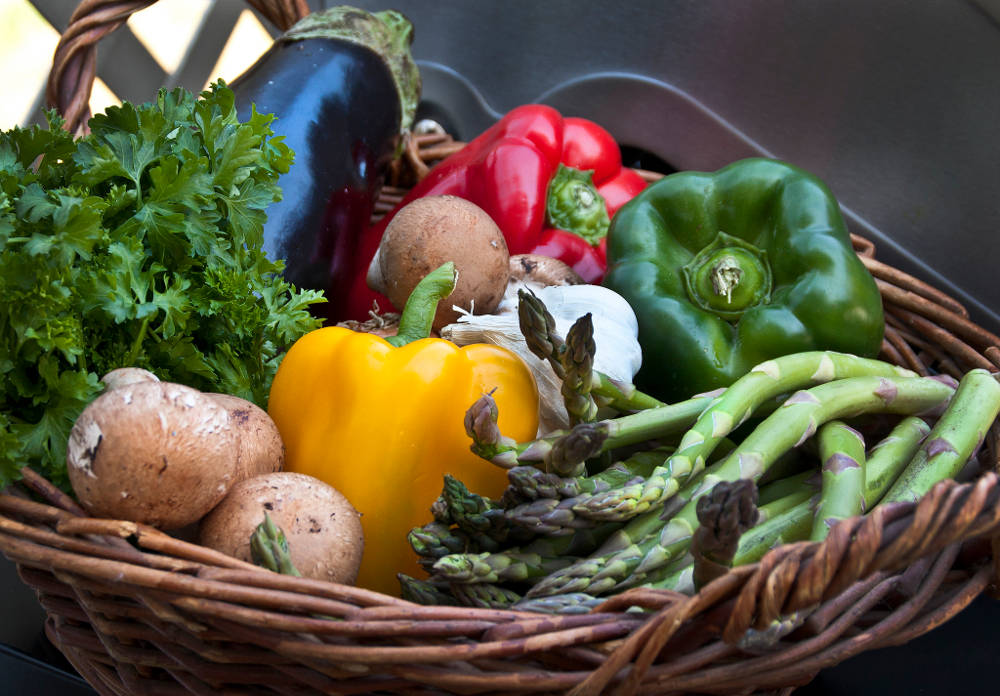[Photograph by Liz West under Creative Commons]
Remember Farmville? That little virtual farming game Zynga introduced on Facebook a few years ago. I was hooked to it for a brief while a couple of years ago. The more I played the game, the more demands it made of me. I would suddenly remember at 10pm even as I would be winding down from a long work day that I had to water my virtual cabbages or carrots or whatever it is that I had planted. Another couple of hours without water and they would die - and I would lose my precious virtual crop, and my precious virtual Farmville money. So I would drop everything, and do that first.
Soon the stress of being a virtual farmer watering plants in the middle of the night got to me. Better sense prevailed, and I logged out of Farmville - permanently.
So it was with much interest I read this news story recently. It talked of Juhuasuan, an Alibaba-owned group buying website that allows users to grow their own vegetables in a manner somewhat similar to Farmville. Only in exchange for your efforts, you get real carrots, real radishes, real bok choy or whatever else you have been growing.
Here’s how it works. There are farmers across China’s vast countryside who have swatches of farmland that are not being fully used. The reasons can be many, such as lack of local demand. Juhuasuan takes this land on lease and ‘rents’ it out online as plots to urban dwellers like you and me. The land is then managed by farm cooperatives and the city slickers who have 'rented' the land recommend what vegetables they would like grown, pretty much like we did in Farmville. The produce, when ripe, is shipped to these 'subscribers' so to say, once every two weeks.
This experiment was launched in March 2014 and according to China Daily, 3,500 city dwellers signed up in the first three days, and 9,000 by the end of the year. A total of 666,660 square metres of land was leased out by farmers under this arrangement.
Renting a 66.6 square metre plot for a year apparently costs roughly Renminbi (RMB) 580, a 333 square metre plot costs RMB 2,400, and a 666 square metre plot costs RMB 4,800. Farmers get paid in two ways: they earn between RMB 700-800 a year for leasing out the land. And they get paid extra for taking care of the land and growing produce. When they work in a cooperative and when they work for a site like Juhuasuan, I would assume that there would be some quality control standards in place.
The experiment is still small, but apparently it is growing. It’s still early to say how it will shape up in the future, and I don’t know anyone who is part of it so I definitely can’t vouch for it. However, at a conceptual level, it is a brilliant business idea. For one, it helps individuals - farmers in this case - sweat their idle assets. Think of all the parcels of land that lie fallow all over India just because it is uneconomical for an individual to till that land. Or because the individual farmer sees little demand for farm produce in his vicinity.
Two, Alibaba's group buying site Juhuasuan has stepped in as a technological intermediary - to put it crudely, it is like the Airbnb or the Uber of the farming community in China. At the end of the day, it is nothing but a technology platform that is helping those with idle land resources connect with those with a latent need for fresh vegetables. In the process of connecting farmers with consumers, it is helping farmers by giving them access to vast swathes of a market that is otherwise out of reach for them. They also make an extra buck in the process. Juhuasuan is, in essence, doing for the farming community what Alibaba's e-commerce platform Taobao did in terms of developing entrepreneurs in small-town China.
Three, China is much like the developed world where people are increasingly starting to question where their food comes from, and whether it is safe for consumption. More and more people head for the organic produce section in supermarkets. When a consumer is somehow part of the production process - as is the case in the Juhuasuan experiment - the likelihood of trusting your food source increases.
And four, there are people who are like I was five years ago, who love the thrill of growing their own food, albeit virtually.
So for all the green thumbs out there, this is a brilliant way to grow your own food without getting your hands dirty.


